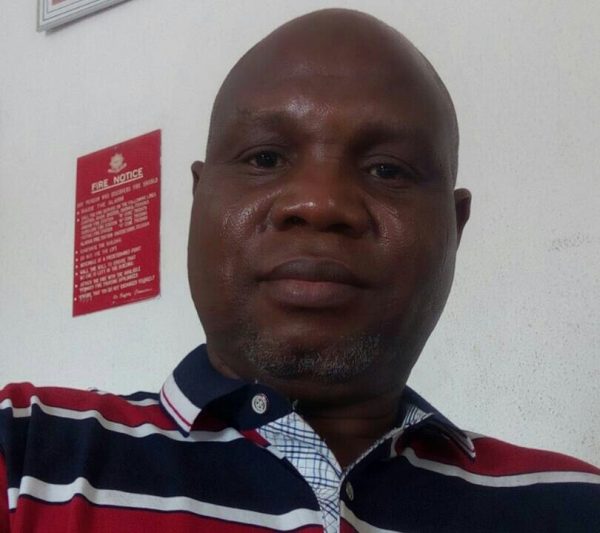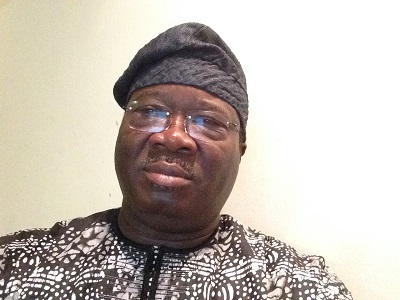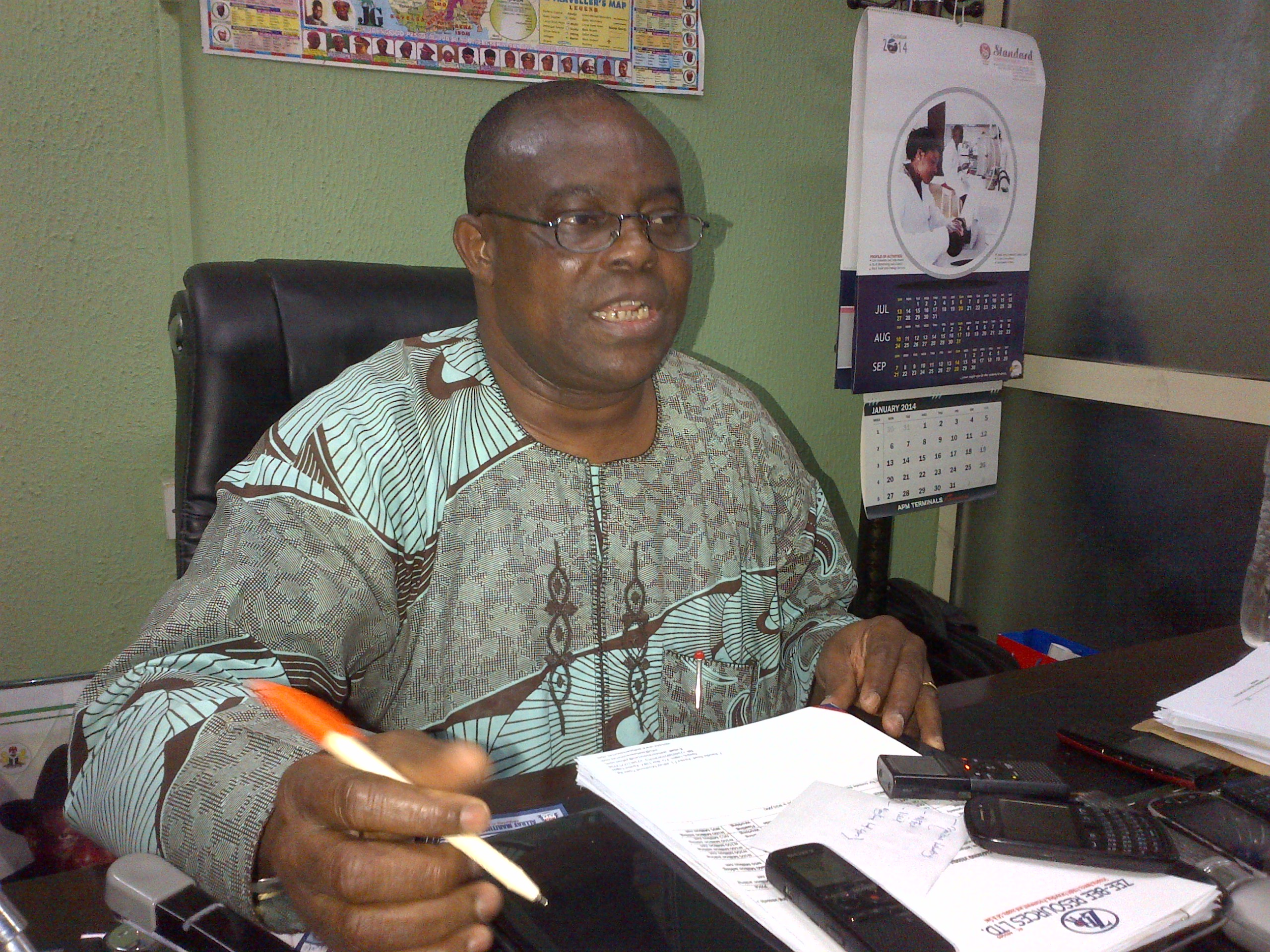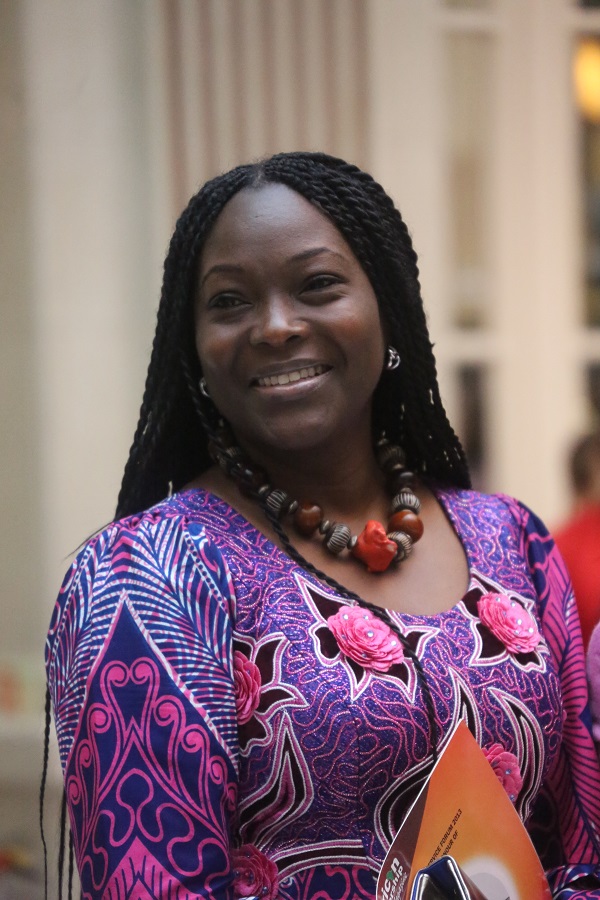CVFF Can Be Used To Develop Nigerian P&I Club – Capt. Taiwo
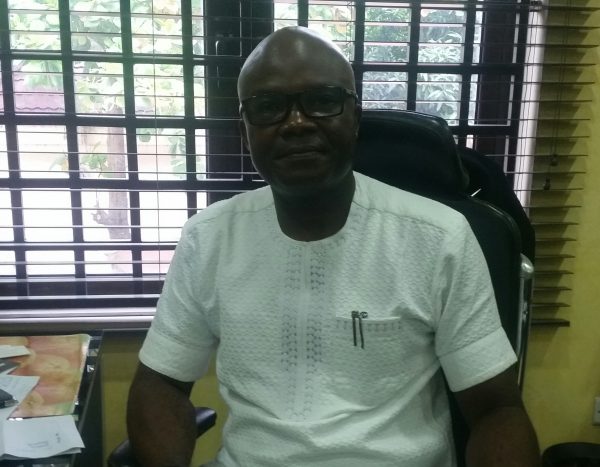
By Kenneth Jukpor
Capt. Taiwo Akinpelumi is the Lagos Coordinator, Nigerian Indigenous Ship-owners Association (NISA). In this interview with MMS Plus newspaper, he shares his aspirations for the nation’s maritime sector in 2019. Capt. Taiwo also highlights some strategies to grow local content in shipping while analyzing the security threats on Nigerian waters.
Excerpts:
As a shipowner, what agenda would you set for the Nigerian maritime sector in 2019?
In 2019, the number one issue I want to be addressed is the security of the nation’s waterways. There is no way we can set an effective and formidable agenda without considering maritime security. Nigerian coast is fast becoming the Hall of Somalia where piracy and armed robbery at sea holds sway. This problem is telling on our operations and the premium Nigerians pay on insurance.
The problem has also affected the nation’s access to cargoes because foreign vessels now have preference to take cargoes to Lome. They feel Nigerian waters aren’t safe enough. NIMASA would stress its compliance to ISPS Code and the other efforts it has put in place to ensure safety, but the issue isn’t about how much they have done. How effective have the efforts and strategies of NIMASA been in solving this problem? Is the agency achieving the desired results? If the noble strate3gies aren’t achieving the desired results then we have to change the tactics.
I still find it unhealthy that NIMASA would prefer to say it has MoU with the Nigerian Navy and the Nigerian Airforce to secure the nation’s territorial waters. This means they are given out their core responsibility to other agencies.
It is also NIMASA’s responsibility to ensure that stakeholders understand the dictates of the ISPS Code and how NIMASA enforces it. More enlightenment would lead to a greater level of compliance and that would go a long way to grow local intelligence and secure the nation’s maritime domain. If NIMASA can focus on these issues for 2019 and make concerted efforts to grow local capacity, then we would achieve a lot in the maritime industry.
I would also advise that all agencies in the maritime sector move away from the myopic notion of setting targets for revenue generation but look at how to grow the industry. By growing the industry, especially the local operators, the ripple effect would bring more money for the government. If we tax the few shipping companies in the country until they close shop, where do we get future taxes from?
Look at the strategies deployed by commercial banks in the country. They give you loans to buy a car which costs N3.5 million at the rate of N4.5 million or N5 million to be paid over a period 10years. You pay easily without stress but it translates to more income for the bank in the long term. NIMASA should look at this strategy and deploy something similar. The agency should be able to sincerely ask itself how many operators it has empowered or grown. If the agency empowers more operators it would translate to more dues and revenue for the country. It is high time we begin to look inwards in order to address the problems in the country. The issue of capacity building, training seafarers and provision of seatime experience should be done by ship owners but ship owners lack the capacity to do that.
Do Nigerian ship-owners genuinely have the capacity to handle some of these contracts that they want NIMASA and NNPC to give them?
Local ship owners might wobble at the onset but NIMASA should treat them with care knowing that consistent flow of businesses would provide the requisite revenue that would enable them grow. At a certain point when the company has enjoyed a stream of businesses, NIMASA can begin to demand certain standards because the company should be expected to grow. The regulator has to look at these issues if they want to grow the industry.
If indigenous operators are empowered, you can mandate them to train, provide seatime opportunities and eventually absorb cadets. We can’t develop our capacity with the strategy of training cadets abroad.
One of the biggest achievements for the maritime industry in 2018 was the NIMASA Forecast. With benefit of hindsight, how impactful has that initiative been to the growth of the maritime industry?
We told NIMASA that the forecast in 2018 wasn’t done properly because the consultant didn’t have enough information and data to make any meaningful forecast. The consultant should have been consulting for the Central Bank of Nigeria (CBN) because he came to discuss financial issues rather than other pertinent maritime operational issues. He was telling the stakeholders to provide data for the industry. Where should the industry data reside? It should be at NIMASA! NIMASA should bring data to us and not the other way around.
There is no gain saying that the maritime industry is at its lowest ebb. Only few companies are managing to stay afloat. We can’t say the industry is doing well when the Small and Medium Sized Enterprises (SMEs) are dying. Remember that these SMEs are actually responsible for the growth of an economy. It is just like someone saying the economy isn’t bad because a pocket of SMEs are surviving. An economy thrives when SMEs have the right environment to grow.
On that NIMASA forecast, it had not brought the desired result because of how they went about the forecast and the consultant they got. We need people that are grounded in the industry to advise NIMASA on specific issues and say this is where we are at the moment, we should be on such level by 2021 and this is what we can do to get there. I know that to grow capacity isn’t a day’s job but there are certain policy statements that would be made that should be immediate measures to correct the state of affairs. For instance, lighterage operations should be only for Nigerians.
The waiver regime should also be stopped and foreign vessels without a Nigerian with substantive interest in its crew shouldn’t be allowed to operate in the country. Another issue is capacity building. NIMASA should focus on these issues other than investing in floating dockyards. What impact has that NIMASA dockyard made for the industry? The agency should put infrastructure in place to ensure the private sector grows. They should empower people to develop such floating dockyards while they set the standards and regulations for the dockyards to operate optimally. NIMASA shouldn’t be competing with those they ought to be regulating.
On the issue of security of the nation’s waterways, NIMASA says the situation isn’t as bad as the notion painted by the international maritime community. What is the situation at the moment?
I don’t know what parameter NIMASA is using to measure the security level of Nigerian waters. As long as we keep hearing cases of kidnaps, vessels hijack and armed robbery that is the perception the global community would have about the nation’s maritime domain. This is also the barometer we would use to judge how secure our waters are. NIMASA says it is doing its best but obviously the best isn’t good enough. We can’t say the agency isn’t making an effort to correct the situation but the reality is that the problem persists. If this is the capacity of how well the agency can do to address the situation, then their best isn’t good enough.
You did mention some levies to be harsh on ship owners. Looking at the sea protection levy vis-a-vis the security issues on the waterways, is the collection of this fee justifiable?
Since we still have security threats on the nation’s waterways, you can’t say the collection of this fee is justifiable. The government ought to protect the territorial waters and guarantee safety and security to enable people go about their businesses. As an operator, there must be safety for your business to thrive and the government shouldn’t delegate this responsibility to the ship owners because it becomes added taxation. The trend shouldn’t be on how much NIMASA is generating each year, rather they should focus on their core functions of regulating the industry. Money would come if NIMASA focuses on its core responsibility to develop coastal shipping and regulate effectively.
For instance, abroad nobody quarrels with you when you drive recklessly but the put cameras and other measure in place to track you when you drive recklessly. They don’t set revenue targets but they have created a system where they generate money because they send you proof that you have violated the law and the penalty to pay. You pay for your recklessness buy the government didn’t set out initially to generate revenue. It’s in the culture of human beings to err and the government knows this and they make money from offenders for the government.
We have ambiguous levies in the maritime sector because of this drive to generate revenue for the government but this is wrong.
The Minister of Transportation, Hon. Rotimi Amaechi as well as the Director-General of NIMASA, Dr. Dakuku Peterside has given assurances that the Cabotage Vessel Finance Fund (CVFF) would be disbursed in the first quarter of 2019. Is this realistic?
Your guess is as good as mine. We had several promises like that in the past. I believe that if CVFF could be disbursed this year, it would boost the economic activities in the shipping industry. We were promised that it would be disbursed in the last of last year and later first quarter of 2019. I can’t tell if the fund would be disbursed or not.
However, I think there are better ways to utilize the CVFF. The fund should be used as seed money to establish a Maritime Development bank and not disbursed to individual ship owners or companies. The government could be approached for intervention fund for the bank while CVFF also goes there and experts in the banking sector should be allowed to manage it. The bank would set up as a conventional banking institution but the goal would be to ensure that ship owners get loans at single digit interest rate. The double digit interest rate has been a major fiscal challenge over the years.
A colleague of mine has also raised a suggestion which I think is fantastic. When you look at the P&Is all over the world, they are usually owned by ship-owners associations. The CVFF which was contributed by ship-owners can be used to develop a formidable P&I so that the huge capital flight going abroad would be done here in Nigeria. The insurance companies in Nigeria can’t underwrite P&I because it would be very expensive.



